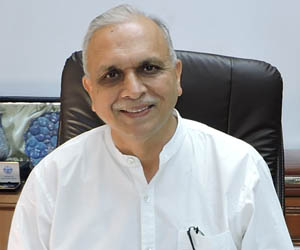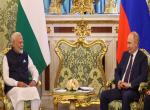Russia’s relations with the West are deteriorating rapidly. The rhetoric from the top leaders on both sides has been sharp and uncharitably harsh. They have expelled diplomats from each others’ countries.
On 19th March, in a TV interview, President Biden had called Putin a ‘killer’. Putin responded by saying it takes one to know one!1 That marked a new low in bilateral relations.
US Sanctions
The US has accused Russia of carrying out cyberattacks, interfering in US elections, invading Ukraine and illegally annexing Crimea, influencing foreign governments through corruption, and going after journalists and political opponents and ‘murdering’ by using chemicals and undermining US national security and that of its allies.
After the end of the cold war, Russian President Yeltsin and his Foreign Minster Kozyrev had followed a conciliatory approach to Russia in the 90s. But Putin, who succeeded them was not prepared to play a second fiddle to the West. Russia also accused the West of engineering regime changes in several countries in Russia’s strategic space. The 2008 Georgia-Russia war and the Russian recognition of South Ossetia and Abkhazia, the breakaway provinces of Georgia, changed and raised tensions in Russia-West relations. The 2014 annexation of Crimea and Russian military action in Donbas, Ukraine led to deterioration in Russia West relations. The west has used a whole lot of sanctions against Russia. Russia has tried to break its isolation by carving out a role in Syria, Libya and elsewhere. Obama administration's attempts at a reset of relations with Russia in 2009 did not succeed. Russia is now seen as having interfered in US elections in 2016 and 2020. Biden administration has indicated a desire to pursue cooperation with Russia on climate change and nuclear stability, the prospects of any deep cooperation are none too good.
Biden administration's Interim national Security Strategic Guidance says, “Russia remains determined to enhance its global influence and play a disruptive role on the world stage. Both Beijing and Moscow have invested heavily in efforts meant to check U.S. strengths and prevent us from defending our interests and allies around the world.”2
In the post-Cold War, the rivalries between Russia and the West are likely to deepen further. This will impact India also. Indian foreign policy will have to take this trend into account. India cannot afford to choose sides between Russia and the West. It may have to adopt an issue-based approach.
On 15th April President Biden signed an Executive Order3 imposing a range of strategic and economic sanctions on Russia. These included blocking Russian entities to raise debts in the international market, directly naming a Russian intelligence agency for cyber espionage, and sanctioning specific Russian individuals dealing with Crimea and Ukraine. The new sanctions appear symbolic at best. President Biden was careful to state that his response would be “proportionate”. He kept the door open for cooperation with Russia in selected areas.
It is interesting that despite the sanctions, President Putin decided to participate virtually in the Biden convened leadership Summit on climate change on 22nd-23rd April. That means he did not want to burn all bridges with the US.
The Russian response to the US sanctions has been measured. It responded in a tit-for-tat action by expelling 10 US diplomats from Russia and blacklisted eight current and former US officials including Christopher A. Wray, Susan Rice and John Bolton.
Russian Concerns
Russia, faced with acute western hostility, is deeply concerned with NATO’s eastward expansion. Western efforts to supply military aid to east European countries and the Baltic nations are seen with great concern in Russia. The west has also deployed ballistic missile defence systems in eastern Europe. Ukrainian President Zelensky has been seeking NATO membership for Ukraine for some time now. The next NATO summit in June may offer a membership roadmap to Ukraine. This will hugely provoke Russia and aggravate tensions in Europe. Several European countries are planning military exercises with Ukraine. Russia regards such activity as hostile to Russia.
In April, Russia amassed 100,000 troops near the Russian-Ukrainian border. This raised fear of Russian military action against Ukraine. Much criticisms and harsh statements from the West followed. After making a point about the Russian firmness and resolve in dealing with Ukraine, Russia withdrew its forces. The crisis was defused but it left behind much recrimination and bitterness.
Russian reaction to what it regards anti-Russian activities has been sharp. Putin in his annual State of the Union address4 to the Russian parliament warned the West against crossing the Russian ‘red lines’. He said, “I hope that no one will think about crossing the “red line” with regard to Russia. We ourselves will determine in each specific case where it will be drawn.”5
Russia is much weaker economically as compared to the west but it has been modernising its nuclear and conventional arsenal. Putin is proud of that and he told the Russian parliament that Russian armed forces will be modernised to the extent of 76 percent by 2024 and nuclear triad by 88 percent before the end of 2021. The Avangard hypersonic intercontinental missile systems and the Peresvet combat laser systems have been inducted into the armed forces. Sarmat super-heavy intercontinental ballistic missiles will be deployed by 2022.6 Further inductions include Kinzhal hypersonic missiles, the Kalibr missiles, the Tsirkon hypersonic missiles, and combat systems including Poseidon and Burevestnik.7
Trump had sought to reach out to Russia but the security establishment and the political class was dead opposed. Thereafter, nothing came out of the Trump-Putin summit. Biden has upped the ante vis a vis Russia but kept the door for selective engagement open.
In the meanwhile, European countries are also stiffening their positions. Several countries are being egged on to expel Russian diplomats. Poland, Bulgaria and Czechoslovakia have decided to expel Russian diplomats. This will attract a tit-for-tat reaction from Russia. The outcome of the NATO summit in June will be watched with great interest insofar as NATO’s expansion towards the east, is concerned.
One cannot mistake the general trend. The relationship between Russia and the US is going downhill rapidly. This will cause global instability. The cold war rhetoric is back. In US lingo, Russia is an adversary. Putin is authoritarian. And it cannot be absolved of its actions in Crimea and Ukraine and the numerous cyberattacks against US entities.
In Russian conceptualisation, the world is being run by US diktat and not in accordance with international norms. Russia will oppose any Western efforts to isolate and contain it. Russia is actively making new partnerships in different regions of the world. It has extremely close relations with China and it is developing its ties with Turkey. In Syria, Nagorno-Karabakh and Libya, Russia has found an active role. It opposes the Quad and the Indo-Pacific concept and is trying to build relations with ASEAN countries. At the same time, it places a lot of emphasis on the Shanghai Cooperation Organisation, BRICS, CSTO and Eurasian Union. It has developed considerable military and cyber capabilities. It exploits the sanctions to develop its capacities. Russia is proud that it has developed indigenous vaccines which are helping it to win influence in different countries.
Neither side would gain from an escalation in confrontation. Biden has proposed direct communication between the top leaders and a summit meeting in Europe in the summer. Putin has agreed. Biden says the US wants a stable and predictable relationship with Russia. But it will react with appropriate measures if Russia acts against US interests. Putin has warned that Russian red lines should not be crossed, else Russia will give a befitting response. Let us hope the two sides can resolve their issues at the summit. It remains to be seen what comes out of the Biden Putin summit. The expectations from both sides must be quite low.
Endnotes
- https://www.aljazeera.com/news/2021/3/19/turkeys-erdogan-says-biden-comments-on-putin-unacceptable
- https://www.whitehouse.gov/wp-content/uploads/2021/03/NSC-1v2.pdf
- https://www.whitehouse.gov/briefing-room/statements-releases/2021/04/15/fact-sheet-imposing-costs-for-harmful-foreign-activities-by-the-russian-government/#:~:text=Treasury%20issued%20a%20directive%20that,of%20Finance%20of%20the%20Russian
- Presidential Address to the Federal Assembly
The President of Russia delivered the Address to the Federal Assembly. The ceremony took place at the Manezh Central Exhibition Hall.
April 21, 2021
http://en.kremlin.ru/events/president/news/65418 - Ibid.
- Ibid.
- Ibid.
(The paper is the author’s individual scholastic articulation. The author certifies that the article/paper is original in content, unpublished and it has not been submitted for publication/web upload elsewhere, and that the facts and figures quoted are duly referenced, as needed, and are believed to be correct). (The paper does not necessarily represent the organisational stance... More >>
Image Source: https://cdn-live.foreignaffairs.com/sites/default/files/styles/large_1x/public/images/2021/02/16/RTX8NZDW%20%281%29.JPG?itok=E2JDr_VY

.jpg)









Excellent article
Post new comment